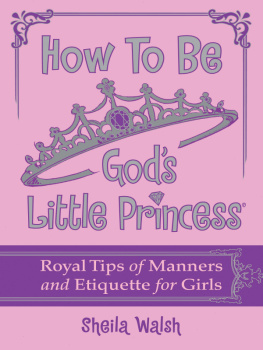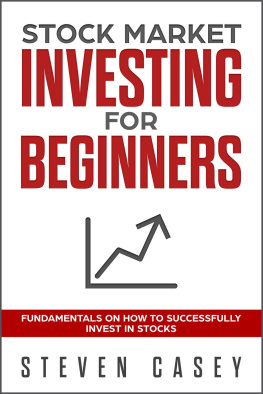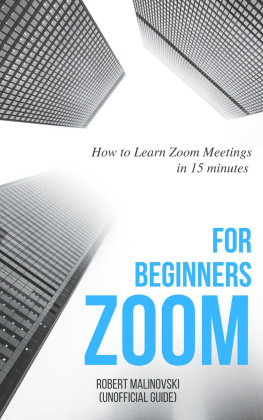Robert Walsh - New Zealand Share Market For Beginners
Here you can read online Robert Walsh - New Zealand Share Market For Beginners full text of the book (entire story) in english for free. Download pdf and epub, get meaning, cover and reviews about this ebook. genre: Business. Description of the work, (preface) as well as reviews are available. Best literature library LitArk.com created for fans of good reading and offers a wide selection of genres:
Romance novel
Science fiction
Adventure
Detective
Science
History
Home and family
Prose
Art
Politics
Computer
Non-fiction
Religion
Business
Children
Humor
Choose a favorite category and find really read worthwhile books. Enjoy immersion in the world of imagination, feel the emotions of the characters or learn something new for yourself, make an fascinating discovery.
- Book:New Zealand Share Market For Beginners
- Author:
- Genre:
- Rating:3 / 5
- Favourites:Add to favourites
- Your mark:
- 60
- 1
- 2
- 3
- 4
- 5
New Zealand Share Market For Beginners: summary, description and annotation
We offer to read an annotation, description, summary or preface (depends on what the author of the book "New Zealand Share Market For Beginners" wrote himself). If you haven't found the necessary information about the book — write in the comments, we will try to find it.
New Zealand Share Market For Beginners — read online for free the complete book (whole text) full work
Below is the text of the book, divided by pages. System saving the place of the last page read, allows you to conveniently read the book "New Zealand Share Market For Beginners" online for free, without having to search again every time where you left off. Put a bookmark, and you can go to the page where you finished reading at any time.
Font size:
Interval:
Bookmark:
New Zealand Share Market For Beginners: NewZealand Stock Market Guide
by Robert Walsh
Table of Contents
SmashwordsEdition
Copyright 2015 Robert Walsh.All Rights Reserved
Disclaimer: This book contains information regarding generalpersonal finance that is based on authors own knowledge andexperiences. It is published for general reference and is notintended to be a substitute for independent verification by aprofessional financial planner or accountant. The publisher and theauthor disclaim any personal liability, either directly orindirectly, for the information contained within. Although theauthor and the publisher have made every effort to ensure theaccuracy and completeness of the information contained within, weassume no responsibility of errors, inaccuracies, omissions andinconsistencies.
Introduction
To a beginner, the share market can beintimidating and exciting, all at the same time. You have heard alot of success stories about people who have entered the sharemarket and have turned a little bit of money into thousands ofdollars. But, you have also heard the stories about the people whohave entered the share market with thousands of dollars and walkedaway with nothing.
If you don't know what you are doing in theshare market, you can lose a lot of money, and quickly. If you takethe time to learn the basics, before diving in, you stand a muchbetter chance of becoming a success story from the beginning.
Let's break down the share market into small,bite-sized chunks, and go over each one with a brief overview. Inorder to feel comfortable enough to make your first trade, you needto have a familiarity with all of the different facets of themarket. So let's go ahead and break it down. What does a beginnerneed to know in order to be successful in the share market?
Saving andInvesting
There is a big difference in using the sharemarket for saving, and using the share market for investing. Asconfusing as it may sound, you can also use the share market forsaving and investing in the same transaction.
When you hear of someone saving forretirement they are using the share market, but generally in theform of mutual funds, property, and superannuation funds. Althoughthis is considered saving, the vehicle for saving is alsoconsidered investing.
Using the share market for investments canstill include mutual fund type investments, but will also coverindividual shares, bonds, commodities, etc. Investing in thesetypes of vehicles can be risky, but does not have to be.
In order to get started with investing in theshare market, obviously, you will need money. Many successfulinvestors decide on a set amount, and then have it automaticallydeducted from their salary each month, then transferred into theirbrokerage account. In case you do not have automatic deductionfacility then the best way would be to set up an internet transferat a specified date on your salary account. That way the amount tobe invested each month in the share market gets taken out each intoyour brokerage account. There is no other way that I think is thereto enforce discipline in investing.
This is my own personal method for insuringthat my savings and investments are fully funded each month,without me ever having to think about it. You may miss the moneyfor the first month or two, but soon, you won't even realize it'snot there.
Making your investments automatic eliminatesa huge psychological barrier that prevents most people frombeginning on the road to investing in the share market.
If you figure out your investment strategy atthe beginning, then have your money automatically deducted andplugged into your investment of choice, you don't have to thinkabout it each day, week, or month. You do the up front research,then set and forget.
This strategy will not work for allinvestment vehicles, but if you prefer hands off method ofinvesting, it doesn't get easier than this.
A good initial savings goal for yourinvestments is ten percent. If you are putting aside ten percent ofyour money for savings and investing you will be light years aheadof most. A savings comparison chart from Organisation for EconomicCooperation and Development ( OECD ) done in 2013 showed overallsavings rate for New Zealand is at 1.6% of the net disposableincome. So, be careful and start investing.
If ten percent in savings seems out of reachright now, start off with five percent, and then re-evaluate at theend of the year. Using money that you have specifically ear-markedfor investing in the share market will protect you from your ownshot-gun decisions that might otherwise get you into trouble. Ifinvesting is a planned part of your month, you are much less likelyto make a rash purchase on a hot tip.
One of the most important rules of thumb toremember is that you Never Invest Money That You Can't Afford ToLose. So this means that if you are presented with aninvestment opportunity, but you don't have the money set aside,don't do something silly like take your engagement ring to the pawnshop to fund this opportunity.
Investments like this rarely work out. Notonly will you be out the money that you ponied up for theinvestment, you will also be out whatever it is that you sold orpawned to get the money. Double loss.
Make your investment choices using strategyand forethought with money that was saved for the purpose ofbuilding your portfolio. Don't fall prey to share market schemesthat depend on high emotions and quick cash.
UnderstandingThe New Zealand Share Market For Beginners
What is the Share Market? Think of it assomething that is always changing, always in motion. The only thingthat you can count on is change. The market is made up of thousandsof companies that you, as a consumer, can purchase a small part of.This small part is referred to as a share. Once you purchase ashare, you own part of that company.
As a beginner, and throughout your sharemarket career, you will want to keep one principal at the heartof your strategy. Buy low, sell high. Or, as Warren Buffett said,Most people get interested in shares when everyone else is. Thetime to get interested is when no one else is. You can't buy whatis popular and do well.
The shares that are priced really low will bethe shares that no one is currently purchasing. Don't go out andbuy something because you heard about it on the nightly news, oryou read about it in an investing magazine.
By the time that share started doing wellenough to gain the notice of the media, the price has already goneup too high. So how, as a beginner, are you going to find sharesthat are priced low that nobody knows about, and then expect tomake money? Well, you are not.
As a beginner, your best strategy is to buyduring down markets. Here's another quote from Warren Buffett todrive home this point, If you expect to be a net saver duringthe next 5 years, should you hope for a higher or lower sharemarket during that period? Many investors get this one wrong. Eventhough they are going to be net buyers of shares for many years tocome, they are elated when share prices rise and depressed whenthey fall. This reaction makes no sense. Only those who will besellers of equities in the near future should be happy at seeingshares rise. Prospective purchasers should much prefer sinkingprices.
How Does ShareMarket Work? - How Does A Share Exchange Work?
The share market consists of buying andselling equities, which is the formal term for shares. As detailedin the last chapter, each equity is a tiny portion of the company.The more equities you own, the more of the company you own.
When you purchase equity in a company, forthe most basic investments, you are hoping that the share pricewill go up. You want to buy low, and sell high. So, let's say thatyou buy a share of Air New Zealand Limited (AIR). AIR is the symbolby which it trades on the New Zealand Stock Exchange (NZX). At thetime that I wrote this, AIR share was selling at $ 2.840. Thisprice is down $0.005 since the last time the price was updated,which according to the website that I pulled the data from, was 20minutes ago.
Next pageFont size:
Interval:
Bookmark:
Similar books «New Zealand Share Market For Beginners»
Look at similar books to New Zealand Share Market For Beginners. We have selected literature similar in name and meaning in the hope of providing readers with more options to find new, interesting, not yet read works.
Discussion, reviews of the book New Zealand Share Market For Beginners and just readers' own opinions. Leave your comments, write what you think about the work, its meaning or the main characters. Specify what exactly you liked and what you didn't like, and why you think so.












